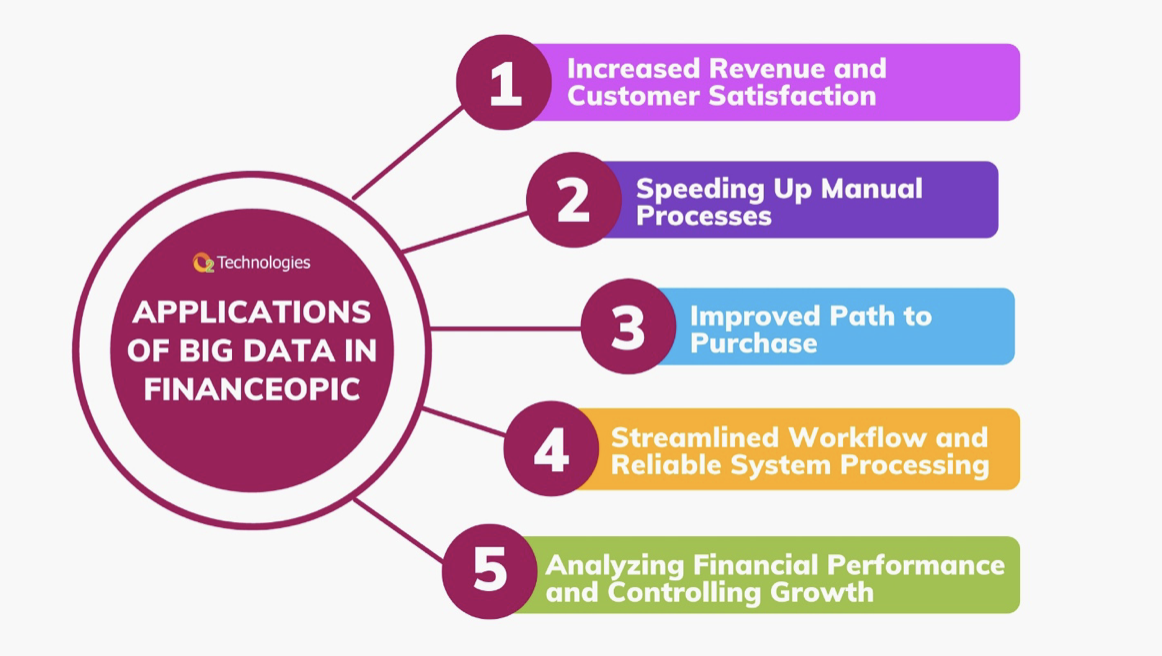
In this era of digital transformation, the finance industry is experiencing a significant shift due to the advent of big data. The ability to harness and analyze vast amounts of structured and unstructured data has opened up new possibilities for financial institutions. Advanced technologies like machine learning, artificial intelligence (AI), and cloud computing are transforming how banks and other financial organizations operate and compete in the market. In this article, we will explore the various ways in which big data is revolutionizing the finance industry and the challenges and opportunities it presents.
Understanding Big Data in Finance
Big data in finance refers to the massive amounts of structured and unstructured data that can be used to anticipate customer behaviors and create strategies for banks and financial institutions. The finance industry generates a vast amount of data on a daily basis, including transaction records, customer information, market data, and more. This data can provide valuable insights and help financial institutions make informed decisions.
Structured data is information managed within an organization to provide key decision-making insights. On the other hand, unstructured data exists in multiple sources and offers significant analytical opportunities. The value of this data depends on how it is gathered, processed, stored, and interpreted. Traditional legacy systems often struggle to handle unstructured and siloed data without complex IT involvement. As a result, financial organizations are increasingly adopting cloud-based big data solutions that offer scalability, flexibility, and improved analytics capabilities.
Big data technology solutions enable financial companies to analyze diverse sets of data and make informed decisions on various aspects such as customer service, fraud prevention, customer targeting, channel performance, and risk exposure assessment. By leveraging big data, financial institutions can gain a competitive edge and discover new market opportunities.
The Impact of Big Data on the Finance Industry
Big data has revolutionized the finance industry in several ways, enabling significant technological innovations and transforming business processes. Let’s explore some of the key areas where big data is making a difference:
1. Real-Time Stock Market Insights
Machine learning and big data analytics have revolutionized the way trade and investments are made. Instead of simply analyzing stock prices, big data can now consider political and social trends that may affect the stock market. Machine learning algorithms monitor trends in real-time, allowing analysts to compile and evaluate the appropriate data and make smart decisions.
2. Fraud Detection and Prevention
Machine learning, fueled by big data, plays a crucial role in fraud detection and prevention. By analyzing patterns and anomalies in customer behavior, financial institutions can identify potentially fraudulent activities and take immediate actions to mitigate risks. For example, if secure credit card information is stolen, banks can freeze the card and transaction, and notify the customer of security threats.
3. Accurate Risk Analysis
Big data and machine learning algorithms have transformed risk analysis in the finance industry. Financial decisions like investments and loans now rely on unbiased machine learning models that consider various factors such as the economy, customer segmentation, and business capital. These models help identify potential risks and make calculated decisions to minimize losses.
Applications of Big Data in Finance

The applications of big data in the finance industry are vast. Here are some examples of how financial firms can leverage big data to drive business growth and enhance customer satisfaction:
1. Increased Revenue and Customer Satisfaction
By applying big data solutions, companies can gain insights into customer payment behaviors and predict payment delays. This enables them to take proactive measures to shorten payment delays, generate more cash, and improve customer satisfaction. For instance, companies like Slide trade have developed analytics platforms that predict clients’ payment behaviors, allowing them to optimize cash flow.
2. Speeding Up Manual Processes
Data integration solutions can scale up to meet changing business requirements. Credit card companies like Qudos Bank leverage data integration tools to automate manual processes, save IT staff work hours, and gain insights into daily customer transactions. Access to a complete picture of all transactions enables companies to streamline operations and make data-driven decisions.
3. Improved Path to Purchase
Cloud-based data management tools have helped companies like Money Supermarket integrate data from various web services into data warehouses for consumption by different departments, such as finance, marketing, business intelligence, and reporting. This enables companies to improve the path to purchase for customers, make data-driven marketing decisions, and analyze performance metrics on a daily basis.
4. Streamlined Workflow and Reliable System Processing
The increasing volume of data in the banking industry has led to the modernization of core banking data and application systems. Application integration platforms, such as those implemented by Landesbank Berlin, enable companies to process large volumes of data efficiently, automate critical processes, and provide a reliable system for information logistics.
5. Analyzing Financial Performance and Controlling Growth
Companies like Syndex have automated daily reporting and analysis of financial performance using data integration processes. This automation helps IT departments gain productivity, allows business users to access critical insights easily, and improves collaboration between different business units.
Challenges in Implementing Big Data in Finance
While big data offers immense opportunities for the finance industry, there are challenges that organizations need to overcome. Some of the key challenges include:
1. Regulatory Requirements
The finance industry is heavily regulated, and financial institutions must comply with stringent requirements for data access and reporting. Big data technology can help financial institutions scale up risk management cost-effectively and deliver required insights for regulatory compliance.
2. Data Security
With the rise of cyber threats, data security is a top concern for the finance industry. Financial institutions must ensure that data governance measures are in place to protect sensitive customer information and mitigate risks. Big data management tools provide enhanced security and enable the detection of suspicious activities.
3. Data Quality
Finance companies need to ensure that the data they collect is accurate, usable, and secure. Data from multiple sources may not always agree, posing challenges for data governance. Data management solutions help ensure data quality and provide real-time analytics for accurate insights and decision-making.
4. Data Silos
Financial data is often scattered across different sources, including employee documents, emails, and enterprise applications. Combining and reconciling big data requires efficient data integration tools that simplify the process and provide easy access to information.
Getting Started with Big Data in Finance
Implementing big data solutions in the finance industry requires a strategic approach. Here are some steps financial organizations can take to embrace data-driven transformation:
1. Define a Data Strategy
Start by defining a comprehensive data strategy that aligns with your business goals. Examine where your data is heading and growing, and focus on long-term solutions instead of short-term fixes. A well-defined data strategy should span across all departments and partners.
2. Select the Right Platform
Choose a cloud data platform that is flexible, scalable, and specializes in security. This will allow you to collect and process data in real-time while ensuring data accessibility and protection. The platform should meet your specific business needs and provide advanced analytics capabilities.
3. Start with One Problem
To effectively implement big data solutions, start by identifying and tackling one business challenge at a time. By focusing on one problem and expanding from there, you can build cohesive and realistic solutions. Basic use cases can be built upon and expanded over time.
Big Data Solutions for the Finance Industry
As the finance industry continues to adopt big data solutions, new technologies and offerings are emerging to provide cost-effective solutions for both small and large financial institutions. Talend’s end-to-end cloud-based platform, for example, offers a comprehensive suite of tools for data preparation, integration, quality management, and governance. This platform helps accelerate financial data insight and enables organizations to leverage the power of big data for business growth.
To conclude, big data is revolutionizing the finance industry by enabling financial institutions to make data-driven decisions, improve customer satisfaction, streamline operations, and mitigate risks. However, implementing big data solutions comes with its own set of challenges. By defining a data strategy, selecting the right platform, and starting with one problem at a time, financial organizations can effectively harness the power of big data and drive their business forward in this digital age.
Please get in touch with us to learn more about outsourcing Big Data development.
